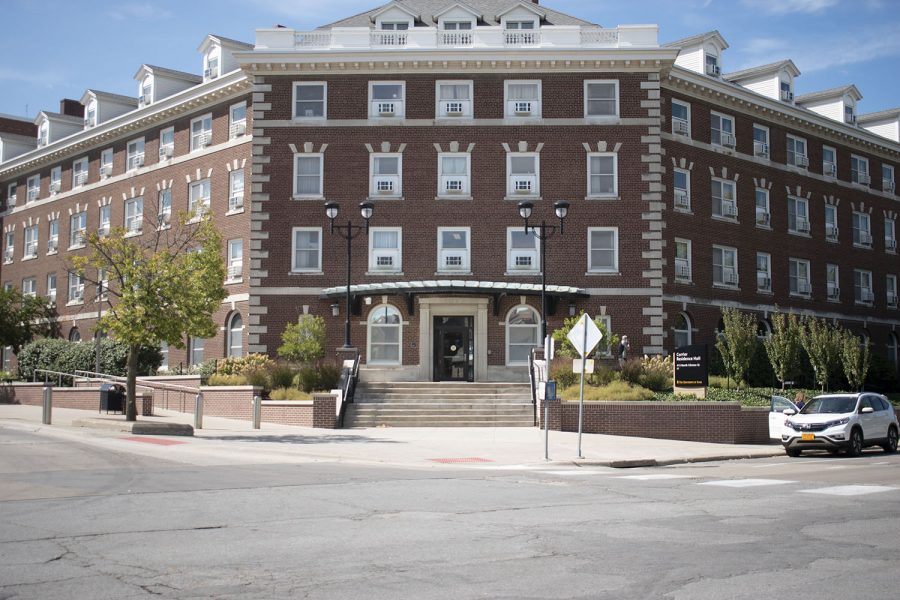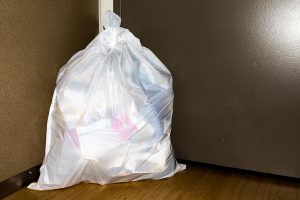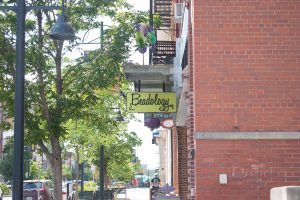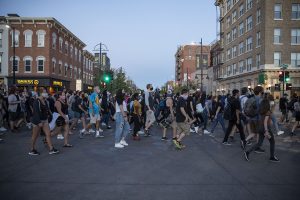UI Housing & Dining will not notify residents when COVID-19 positive students are moved to quarantine
University of Iowa Housing & Dining is not notifying residents when their neighbors test positive for COVID-19 and are moved to quarantine or isolation. As a result, some residents say they feel unsafe in their dorms.
August 30, 2020
Multiple students living in residence halls said they’ve felt unsafe since arriving on campus, citing what they see as a lack of communication from University Housing and Dining when a resident tests positive.
The UI administration is not notifying residents when their neighbors have moved to quarantine or isolation, according to the UI’s COVID-19 update page, due to health-care privacy laws.
Director of Residence Education Gregory Thompson said there was a delay in identifying quarantine and isolation areas because signage did not arrive in time.
While these communities are now labeled, this is not what residents encountered upon move-in, they say.
“There was an initial delay on [the labeling of quarantine and isolation floors] because of some ordering of the signs,” Thompson said.
UI sophomore Grace Stackhouse, who lives in Stanley Residence Hall, did not receive any notification from University Housing and Dining when students started being quarantined and isolated in her residence hall.
RELATED: Social distancing restrictions lead to long lines outside UI dining halls
“We didn’t get any emails or texts or anything,” she said.
University Housing and Dining has made between 250 and 300 rooms in the residence halls available for quarantining, UI spokesperson Jeneane Beck told the DI last week. As of Friday, 40 students were in quarantine and 19 in self-isolation in the residence halls.
Stackhouse said that these areas are not clearly labeled and easy to miss for residents.
“The signs they put up are just like any other sign,” Stackhouse said. “I’ve had to stop multiple people that were walking into the area just because they hadn’t seen the sign.”
University Housing and Dining does not have a notification system in place for alerting residents of quarantined or isolated students. The decision to not notify students was made in consultation with the university’s critical incident management team, Thompson said.
University of North Carolina Chapel Hill’s notification service, alerts students of clusters of COVID-19 in residence halls, though don’t specify how many cases.
Thompson said that the university will not notify residents if someone on their floor has tested positive for COVID-19, but residents should operate under a policy of assumption.
“The university’s messaging right now is that they want all students to assume that they are interacting with folks that have positive COVID symptoms,” he said.
RELATED: Johnson County sees surge in COVID-19 cases as students return for first week of classes
He pointed out that though residents are not notified when students move to quarantine or isolation, there are designated areas for containment.
“We have designated communities that are separate from the normal residential floors,” Thompson said. “One is for quarantine space and those are for students that have been identified as a close contact. The other communities are isolation floors for students that have tested positive.”
He added that the lack of notification by University Housing and Dining is due to health-care privacy laws. He explained that University Housing and Dining has never notified residents of health risks in the past because of federal law restricting the release of medical information.
When it comes to notifying residents of moves to quarantine and isolation, Thompson said that notification is the responsibility of the infected student.
“We are asking the roommate that has been identified as a positive or going into quarantine to notify their roommate that that is happening,” the director said.
UI sophomore Miaomiao Zou, who lives in Burge Residence Hall, said that she understands that it would be illegal to share personal medical information, but noted the peculiarity of this situation.
“When it comes to a transmitted disease like this one, [University Housing and Dining] should at least say something like ‘Hey, somebody on our floor is positive.’” Zou said.
Stackhouse explained that she does not think notification would invade privacy if the names of students are not released.
“It is frustrating to me that the privacy of people is being put over the safety of the whole school,” she said.
Both students said that they feel unsafe in the residence halls due to the actions of students and of University Housing and Dining. Thompson’s response to such concerns focused on the uncertainty of the circumstances.
“The message that I think the university in general is trying to convey is that there’s not a lot of guarantees in this situation,” he said.







